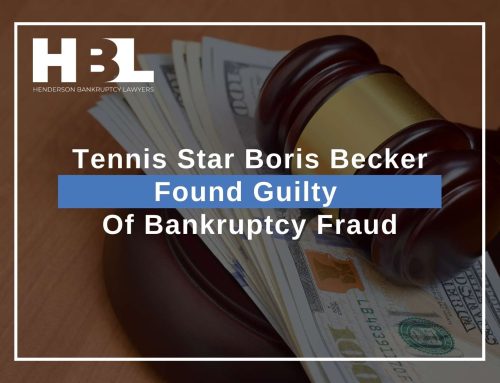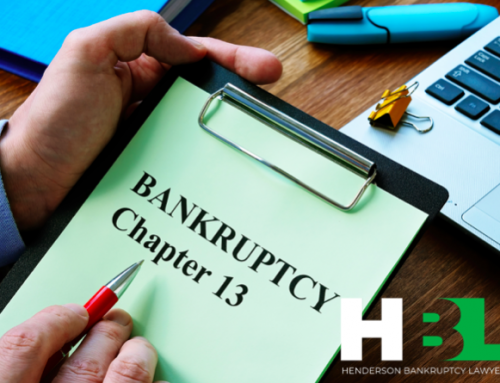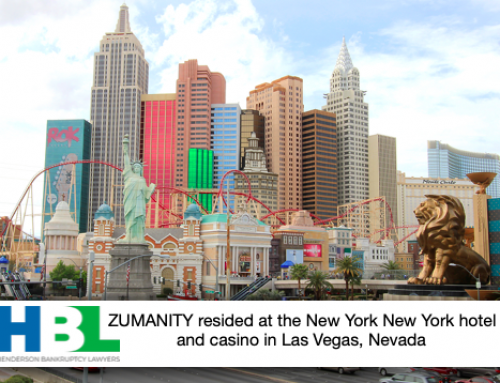Lucky Brand Files Chapter 11 Bankruptcy
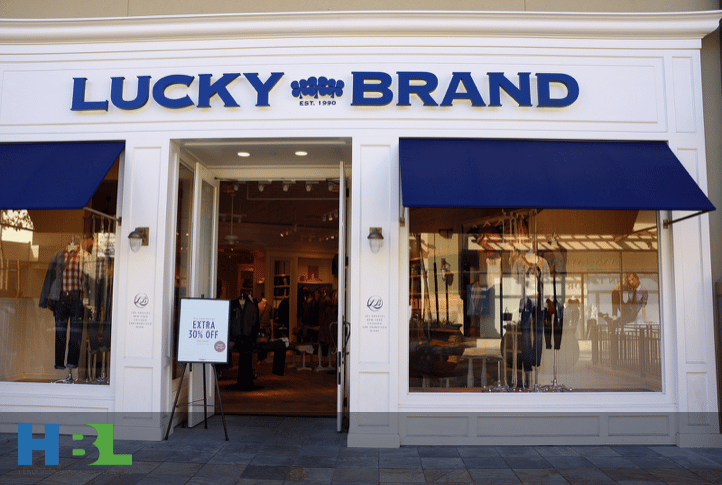
Basic Information About Chapter 11 Bankruptcy in Nevada
Chapter 11 Bankruptcy can be filed by both businesses and individuals. It is typically used by those whose debts and assets are complex and significant- at least in the millions. An important characteristic of Chapter 11 bankruptcy that is if a company files, it doesn’t have to shut down. Instead of being liquidated like in Chapter 7, debts will be restructured. The company’s major creditors will form a panel that will approve the restructuring plan and oversee business decisions that are out of the ordinary. These include decisions like opening new lines of credit, opening or closing a location, and selling operating equipment. There are no set time frames for completing the bankruptcy, nor are there limits on the company’s debt or profits.
Another reason Chapter 11 is only typically used by large companies is the high cost to complete a case. The filing fees alone for a Chapter 11 Bankruptcy are $1,717 compared to $335 for Chapter 7 Bankruptcy and $310 for Chapter 13 Bankruptcy. Unlike Chapter 7 but similar to Chapter 13, navigating a Chapter 11 pro se, or without an attorney, is virtually impossible. A business will likely also need advice from professionals besides bankruptcy attorneys. For example, Lucky Brand retained a law firm, Latham & Walkins LLP, a consulting firm, Berkeley Research Group LLC, and an investment banking firm, Houlihan Lokey Capital Inc., for its Chapter 11 bankruptcy.
Lucky Brand’s Chapter 11 Bankruptcy Plan
Lucky Brand filed its bankruptcy on July 3, 2020 in Delaware. On the same day the bankruptcy was filed, the company was purchased by SPARC Group. SPARC Group also owns the fashion chains Aeropostale and Nautica. Lucky Brand stated that the bankruptcy filing was, in part, to help facilitate the sale to SPARC Group. The company’s top debts were $182 million to creditors and $79 million to vendors. Some of the company’s creditors have agreed to front an additional $15.6 million to Lucky Brand to help it complete the bankruptcy.
One of the company’s biggest expenses is rent for its store locations. In 2020, Lucky Brand’s lease expenses will be $52 million. In fact, the company owes $4 million to one of its landlords, Simon Property Group. To ease that burden, Lucky Brand is starting by closing 13 stores, but may close more locations later in the bankruptcy.
Store Locations Closing in the Bankruptcy
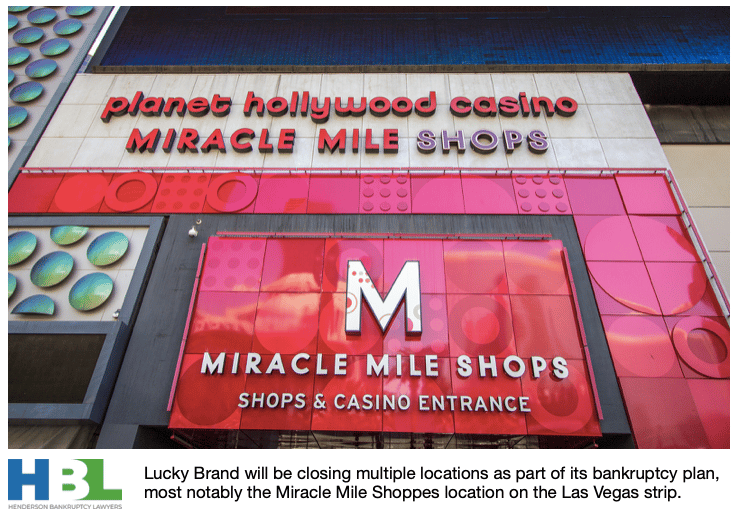
Fans of Lucky Brand may now need to shop for the company’s styles online or in department stores. The company is currently offering deep discounts in an attempt to draw customers back in. Lucky Brand will be able to look to fashion companies that filed bankruptcy earlier in the pandemic for ideas of how to return to profitability. JC Penney, Neiman Marcus, J Crew, and True Religion are just a few of the other clothing stores that have filed bankruptcy since COVID-19 quarantine restrictions were put in place. Only time will tell which strategies will be the most successful in helping these stores successfully emerge from both the pandemic and Chapter 11 bankruptcy.

